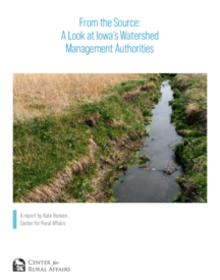Lawmakers in Iowa will debate a host of issues during the 2024 legislative session, including energy, water quality, and rural grocery.
Click here to read about our 2024 Iowa Legislative Priorities.
Scroll through the blogs and publications below for the latest updates.
Want to start getting emailed updates?
Stay informed on what is happening in the Iowa Statehouse during the legislative session with the Center's biweekly legislative updates.
We’ll keep you in the loop with updates, action alerts, and steps you can take to advocate for timely policy.
Contact us
For more information on these updates, contact Cynthia Farmer, policy associate, at 402.687.2100 x1034 or cynthiaf@cfra.org.







